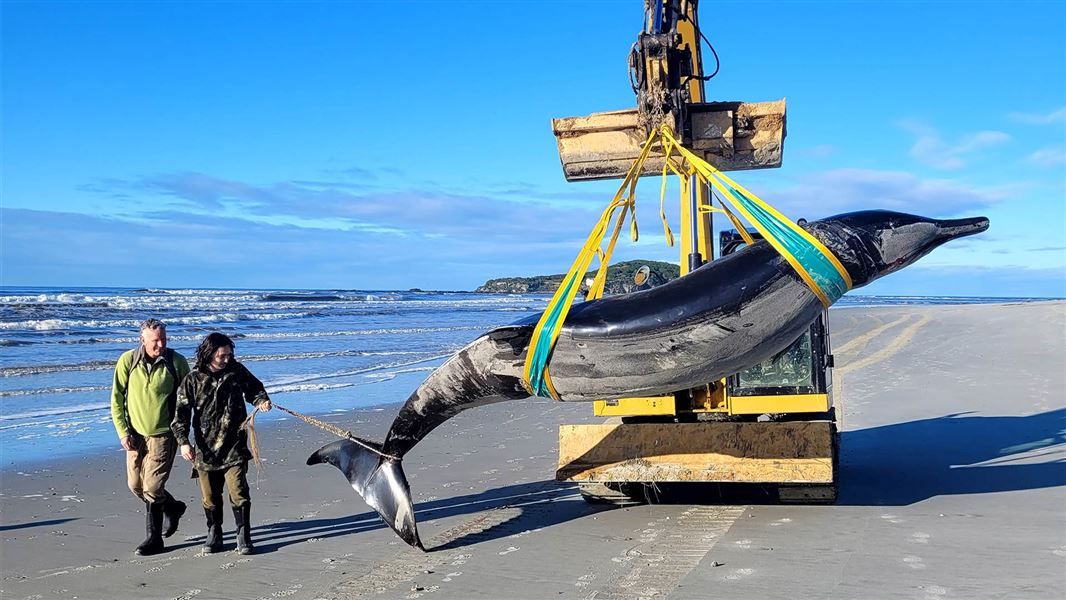The ocean is a treasure box, filled with beautiful and curious objects. Sometimes these riches wash ashore: conch shells, messages in bottles, sea glass. In the summer of 2024, a different kind of treasure appeared on a New Zealand beach: the carcass of a spade-toothed beaked whale. While a decaying body might not seem valuable, for scientists, it’s an epic find.
That’s because this sea creature spends its life hidden from humans. With only six specimens ever found, it’s the rarest of all whale species. We’ve never seen one alive.
Now, the corpse has been frozen, so that scientists may soon dissect and examine it. There are a few things we already know. With a long snout like a dolphin, the spade-toothed beaked whale gets its name from two small, flat tusks that curl up and over its snout. About 16 feet long, it belongs to the beaked whale family, known for their elusiveness: often dark gray, with a small, curved fin, beaked whales prefer the open sea, diving long and deep for food. These characteristics make it difficult to learn much about them, which is certainly true for the spade-toothed beaked whale: their population size, typical behavior, and diet remain a mystery.
It’s a great fortune that the whale washed up on the beach, as it can join the modest but priceless collection of current specimens. Skeletal remains, some over 150 years old, and one small tissue sample from 2010, are all we currently have. But examination of the recent spade-toothed discovery will reveal far more about these creatures; our expanded knowledge will be the greatest treasure of all.
Sources:
World’s rarest whale seen for first time: Spade-toothed whale, Scientific America
Scientists may have discovered a rare spade-toothed whale, NPR
World’s rarest whale washes ashore in Otago, Department of Conversation, Government of New Zealand
World’s Rarest Whale Washes Up on New Zealand Beach, Scientists Say, New York Times
More like this:










